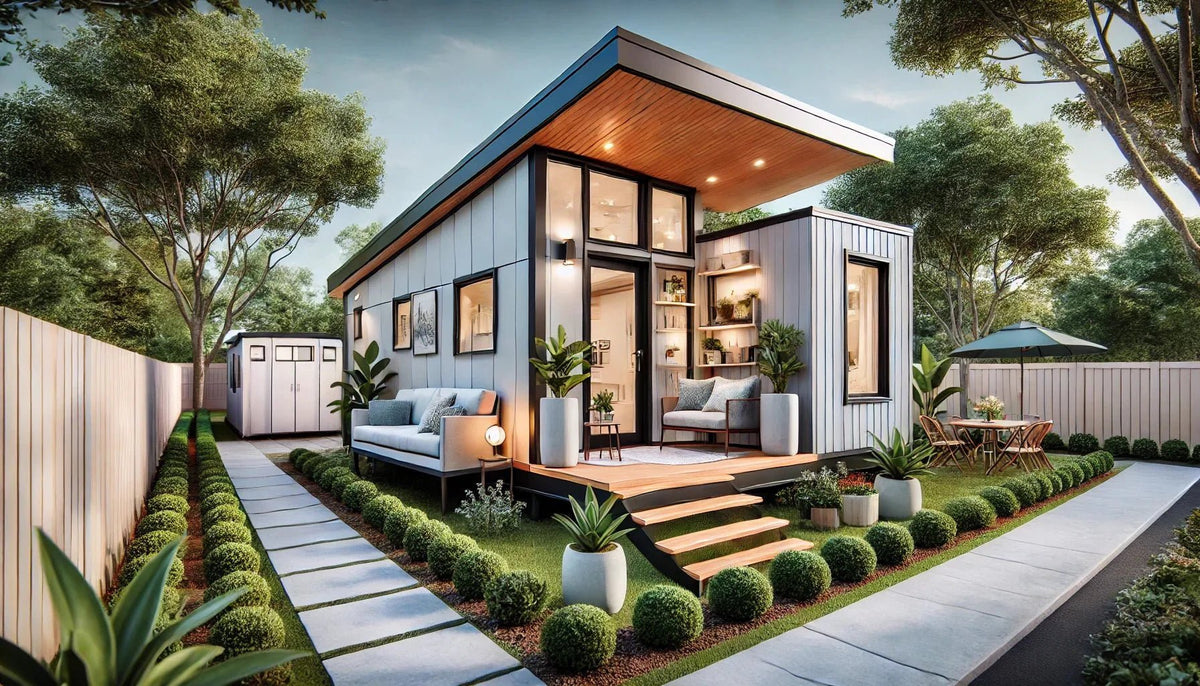
Tiny Homes in Tampa, FL: Living Smart in the Sunshine State
|
Time to read 3 min
|
Time to read 3 min
Tampa, FL, known for its warm climate and vibrant culture, is an ideal location for embracing the tiny home lifestyle. Tiny homes offer an affordable, sustainable, and efficient living solution that aligns with Tampa's urban and suburban landscapes. This article delves into the benefits of living in a tiny home in Tampa and provides a comprehensive overview of the city's regulations and permitting requirements.
Tiny homes are significantly more affordable than traditional homes, making them an attractive option for those looking to reduce housing costs. With lower purchase prices, utility bills, and maintenance costs, tiny homes allow residents to allocate their resources to other important areas of life.
Tiny homes are designed with sustainability in mind. They often incorporate eco-friendly materials and energy-efficient systems, reducing the environmental impact. Features like solar panels, composting toilets, and rainwater harvesting systems contribute to a greener lifestyle.
Living in a tiny home encourages a minimalist lifestyle. With limited space, residents are prompted to declutter and focus on what truly matters. This can lead to a more intentional and fulfilling life, free from the burden of excess belongings.
Many tiny homes are built on trailers, allowing for mobility and flexibility. This makes it easier to relocate without the hassle of traditional moving processes. Residents can explore different neighborhoods and environments without sacrificing the comforts of home.
Tampa has specific regulations and permitting requirements for tiny homes. Understanding these is crucial for ensuring compliance and avoiding legal issues.
Tampa's zoning and building codes can vary depending on the location and type of tiny home. Here are key considerations:
The permitting process for tiny homes in Tampa involves several steps:
Tiny homes in Tampa must be connected to local utilities, including water, sewer, and electricity. The cost and complexity of these connections can vary, so it’s important to plan accordingly. Some tiny home communities offer shared utilities, which can simplify the process and reduce costs.
Living in a tiny home in Tampa, FL, offers numerous benefits, from affordability and sustainability to a minimalist and flexible lifestyle. Understanding the local regulations and permitting requirements is crucial for a successful tiny home living experience. My Tiny Home Hub’s expandable container homes are designed to meet these requirements, providing a seamless and enjoyable living solution in the Sunshine State.
Benefits include affordability, sustainability, a minimalist lifestyle, and flexibility. |
All rooms except kitchens must be at least 70 square feet, and living areas must be at least 120 square feet. |
The process includes application submission, plan review, multiple inspections, and final approval. |
Yes, tiny homes must be built on a permanent foundation unless classified as RVs. |
Tiny homes must be connected to local utilities, including water, sewer, and electricity. |
Yes, features like solar panels, composting toilets, and rainwater harvesting systems are common. |